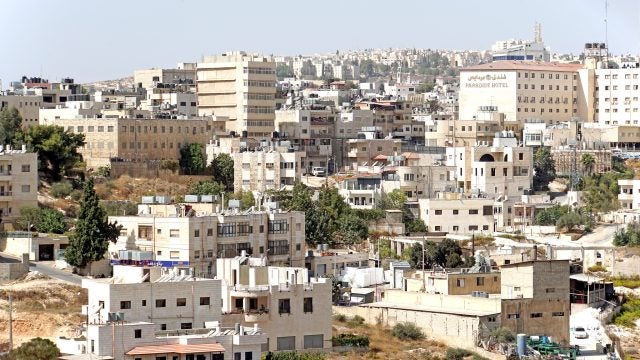Title: US-Iran Relations Under President Biden: Back to the Status Quo Ante?
President-elect Biden and his foreign policy team have been mulling over US policy toward Iran for the past few months, and they will continue to do so. While much has changed in the Middle East since the Obama administration, the new political reality established by President Trump and Ayatollah Khamenei, and the constraints imposed therein, will extend long shadows over US-Iran relations and what can be achieved in the President-elect’s first term.
The United States and Iran have experienced four decades of poor relations. Incidents of note include the CIA-MI6 sponsored coup against Iranian prime minister Mossadegh in 1953, the US hostage crisis 1979-81, the mistaken downing of an Iranian passenger jet in 1988 by the USS Vincennes, and President George W. Bush’s categorisation of Iran as part of the ‘Axis of Evil’ in 2002. But less known are the opportunities for strategic openings in US-Iranian diplomacy. At least two such instances followed US intervention in Afghanistan and Iraq. The most significant was after the fall of Saddam Hussein when an alleged “grand bargain” proposal was offered by Iran to the United States via the Swiss Embassy in Tehran in 2003, but it was not acted upon because, according to then-Deputy Secretary of State, Richard Armitage, it was not in “consonance with what we [the United States] were hearing face to face,” particularly on terrorism.
On October 18, 2015, the five permanent members of the UN Security Council plus Germany (the P5+1) and Iran signed the Joint Comprehensive Plan of Action (JCPOA). It placed significant restrictions on Iran’s nuclear program, extending Iran’s “break out” time to get a nuclear weapon from a few weeks to at least a year, in exchange for sanctions relief. The JCPOA was not a perfect deal but could have served as a strategic opening and a rare platform on which to explore further agreements with Iran in the realms of security, defence, and regional cooperation. This would presuppose a return to a golden era of Saudi-Iranian relations that existed most recently from 1996 to 2005 when a temporary convergence in threat perception presented new opportunities for cooperation. President Obama was candid in 2016 when he said that Saudi Arabia needs to “share the Middle East with Iran” and “institute some sort of cold peace.”
Over the past four years, President Trump has presided over the wholesale rollback of President Obama’s foreign policies, including on climate change and the providing of overt support for Israeli Prime Minister Netanyahu’s annexation policies in the West Bank. The unilateral withdrawal of the United States from the JCPOA on May 8, 2018 made the initial US backing of the Saudi aerial campaign in the Yemen conflict completely redundant since it was justified at the time as being necessary for the Kingdom to accept the JCPOA. President Trump has also emboldened Arab allies to blockade Qatar from June 2017, a move which has been criticized by Anthony Blinken, former deputy Secretary of State and National Security Advisor under President Obama and Biden’s choice for Secretary of State. President Trump encouraged Iran to renege on its commitments associated with the JCPOA and allowed it to benefit from US troop withdrawal from Syria and Iraq. Alongside rhetoric about moving US forces out of the Middle East, they have actually remained at similar numbers overall and increased in response to escalation of tensions in the Gulf in 2019. The “maximum pressure” policy against Iran may have created an impact on the Iranian rial, the Iranian economy, livelihoods, and unrest, but has done little to achieve better sunset provisions that deny Iran the capability to manufacture nuclear weapons, achieve Iranian concessions on missile development, or cause Tehran to reconsider its contentious regional policies, including relations with Hezbollah. Indeed, Tehran will benefit from some sunset clauses, such as the expiration of the UN arms embargo on Iran on October 18, 2020.
Whilst Trump’s hawkish policy toward Iran did receive support from some quarters, US withdrawal from the JCPOA has created unnecessary tensions in transatlantic relations, undermined multilateral diplomacy, and has not begun to tackle Iranian asymmetric warfare. These have become all the more pressing amid an escalation in the Gulf in 2019 and 2020, including the attack on Saudi oil installations. In December 2019, Iraqi protestors and militia fighters angry with US airstrikes in Iraq stormed the US embassy in Baghdad. President Trump’s response triggered the assassination of General Qasem Soleimani in Iraq and thereby pushed the United States and Iran to the brink of war. Iran subsequently accidentally shot down a Ukrainian airline and continues to seek revenge, including a plot to assassinate the US ambassador to South Africa. The alleged Israeli-sponsored assassination of Iran’s top nuclear scientist, Mohsen Fakhrizadeh, in November 2020, is likely to have been known about and supported by the Trump administration. Coming after a covert Israel – Saudi meeting, it was no doubt aimed at undermining de-escalation with Iran during the Biden administration.
President-elect Biden’s first term will be focused on dealing with COVID-19, including its health and economic implications. Foreign policy is likely to be confined to crisis management and the rebuilding of a US commitment to multilateral frameworks. Biden will repair relations with NATO allies (especially the United Kingdom, France, and Germany (the E3) which in turn support the JCPOA) and re-join the Paris Climate Agreement alongside the World Health Organization. The President-elect has outlined how his presidency will contrast to Trump’s who he says “cozies up to dictators.” Following the death of Jamal Khashoggi, the ongoing conflict in Yemen, and human rights concerns, many Democrats have argued that there needs to be a reassessment in the US–Saudi relationship. President-elect Biden is no exception. With the presidency and possible control of Congress, the Democrats may be able to forge ahead on Mideast policy. But even without a majority in the Senate, a new sense of bipartisanship could help foster a wider consensus on US policy in the Gulf and the rest of the region. As one US official recently stated, the Democrats will not want to repeat the situation of a one-party agreement with Iran.
How far President-elect Biden will go to engage Iran for maximal international security remains to be seen. There may be some form of JCPOA snapback involving sanctions removal for Iranian compliance with its nuclear obligations, especially since Jake Sullivan, a chief architect of the JCPOA, is now National Security Advisor-designate to President-elect Biden. There could even be a move to encourage Iran to adopt the ‘gold standard,’ a precedent set by the United Arab Emirates, which agreed to forego enrichment and reprocessing of nuclear material. It goes beyond the inalienable right to enrich uranium for peaceful purposes under the Non-Proliferation Treaty (NPT) but would support non-proliferation concerns in the Gulf and could eventually be extended across the Middle East. The emphasis remains on US hostages in Iran, any movement on which could indicate a softening line from Tehran. While there should also be urgent attempts to stop the conflicts in Yemen and Syria and the ongoing instability in Lebanon, these are unlikely to be included in any further nuclear negotiations between the United States and Iran.
The political reality of re-joining the JCPOA or getting to a similar deal during the COVID-19 era and during an Iranian presidential election cycle will be task enough for the Biden administration. Bringing back experienced policy professionals may help, but it will take time to remove multifaceted sanctions, build trust, and get Iran to engage in reciprocal moves. As Nasr stated earlier this year, a new nuclear deal will not secure the Middle East, only a deal that includes reference to finding a place for Iran will. President-elect Biden is alleged to have said he would only serve one term, so taking further steps along a roadmap toward establishing a sustainable balance of power and regional security complex in the Middle East will most likely be considered by another US president. The Supreme Leader, Ali Khamenei, aged 81, appears to be consolidating the position of hardliners with ties to the Islamic Revolutionary Guard Corps as he prepares for the 2021 presidential election and the political context for his own succession. The possibility of any significant future diplomacy looks uncertain, but potential remains.
. . .
Robert Mason is a Fellow with the Sectarianism, Proxies and De-sectarianisation project at Lancaster University, UK, and a Non-Resident Fellow with the Arab Gulf States Institute in Washington. His forthcoming book is International Relations of the Gulf: Strategic Alliances in an Uncertain World.
Recommended Articles

Critical maritime infrastructures (CMI), and in particular undersea communication cables, are increasingly under threat of attacks by malign actors who benefit from asymmetric capabilities and jurisdictional complexities in the maritime…

This article explores how the Palestinian crisis and the death of the two-state solution endangers the Hashemite Kingdom of Jordan. It illuminates the complicated relationship between Jordan, Israel, and Palestine…

This article explores the uncertain future of Arctic governance amid shifting global geopolitics. It argues that whether Washington and Moscow opt for confrontation or cooperation, multilateralism in the Arctic…